
By Allan Stein

OAKLAND, Calif.—Former harbormaster of Oakland Brock De Lappe doesn’t like to use the word “piracy” to describe waterborne crime on the Oakland/Alameda Estuary.
“People have this romantic view of pirates—Johnny Depp; Pirates of the Caribbean—argh! Avast ye, matey!” said Mr. De Lappe, a marine consultant who was also Alameda’s harbormaster before his retirement.
The reality is anything but romantic. The so-called pirates are nothing like the “Real Oakland Raiders,” as one newspaper headline put it.
“These people are just common criminals,” living on illegal “anchor-off” vessels committing robberies within the San Francisco Bay, he said. Anchor-offs, or anchor outs, are boats that are illegally anchored without a permit.
This past summer, a spree of robberies plagued the 800-foot-wide estuary involving stolen motor boats that were used to prey on larger vessels and marinas.

In one instance, thieves made off with three inflatable dinghies from an Alameda yacht club. Burglars hit at least four other Bay Area yacht clubs, a sailing center, and several owners living on their boats.
Mr. De Lappe, 74, said that while the city of Alameda has been diligent in keeping illegal anchor-offs at bay, Oakland continues to struggle with derelict boats, currently at around 20.
“There’s a criminal element that shows up that’s not just living on these boats anchored out,” Mr. De Lappe told The Epoch Times. “They get really aggressive, going out at night into marinas and stealing equipment off boats, stealing boats out of marinas.”
“Alameda has never allowed this to become a problem on their shoreline. They’ve been victimized. These pirates have gone into Alameda marinas. They’re feeling the brunt of it. But they don’t have the anchor-out vessels on their [Alameda] side.”
Outboard Motor Shop owner Craig Jacobsen said thieves struck two of his boats at his business in Oakland and made off with thousands of dollars in parts and electronics.
“We recovered it at the same [anchor-off] flotilla. I know of about 20 [boats] stolen,” Mr. Jacobsen told The Epoch Times. “They’ve all been found in the same place.”
“For a couple of months, it was serious. We got calls every day about people having their boats stolen. They’d go into the marinas at night, take the small inflatables and stuff, and take them over to their homeless encampment,” he said.
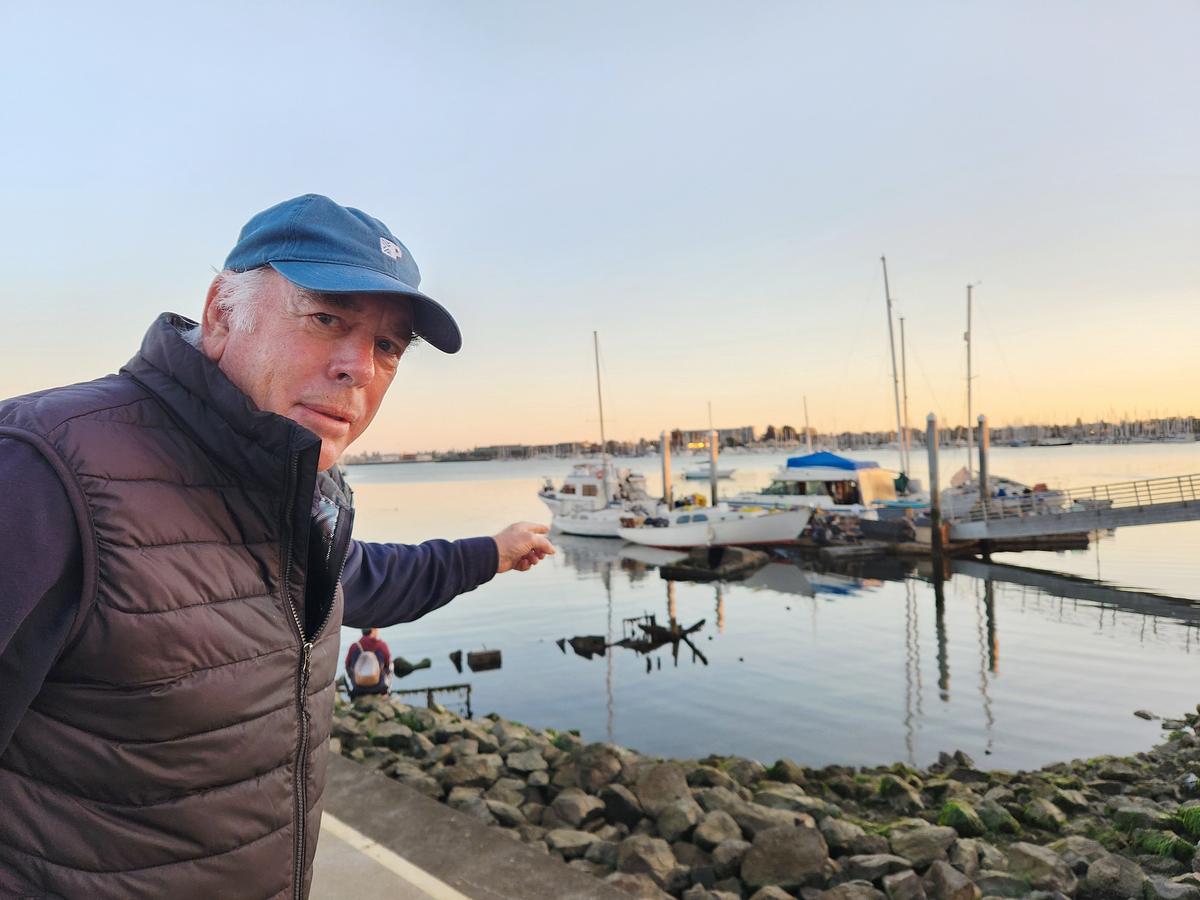
“It’s just homeless people living on boats. For some reason, nobody wants to deal with it. The [Oakland] police say it’s Alameda’s issue. The Alameda police say it’s the [Oakland] side of the estuary.”

Craig Jacobsen, owner of Outboard Motor Shop, in Oakland, Calif., on Nov. 10, 2023. (Allan Stein/The Epoch Times)
Mr. Jacobsen said it makes no difference in installing security fencing and cameras to deter crime.
Criminals always find a way in.
“Twice at night, people came into my yard. One night, I saw people in hoodies going through a boat in the back of my yard. I chased them off. Who knows what’s happening at night when we’re not here,” he said.
The police are short-handed, he said, so calling 911 doesn’t necessarily prompt a fast response.
“We called 911 the morning we found our stuff and were told the officers were tied up with violent crime. We had to deal with it ourselves,” Mr. Jacobsen said.
Tracy Reigelman is the assistant commodore at the Oakland Yacht Club in Alameda. In his role, he’s been dealing with crime related to homelessness for months—not just from so-called pirates but shoreline criminals as well.
“The reality is there is a very lax structure around crime and prevention around here,” he said. “The real issue is that we have these organized crime units, which consist of anchor-out pirates and shoreside crime.
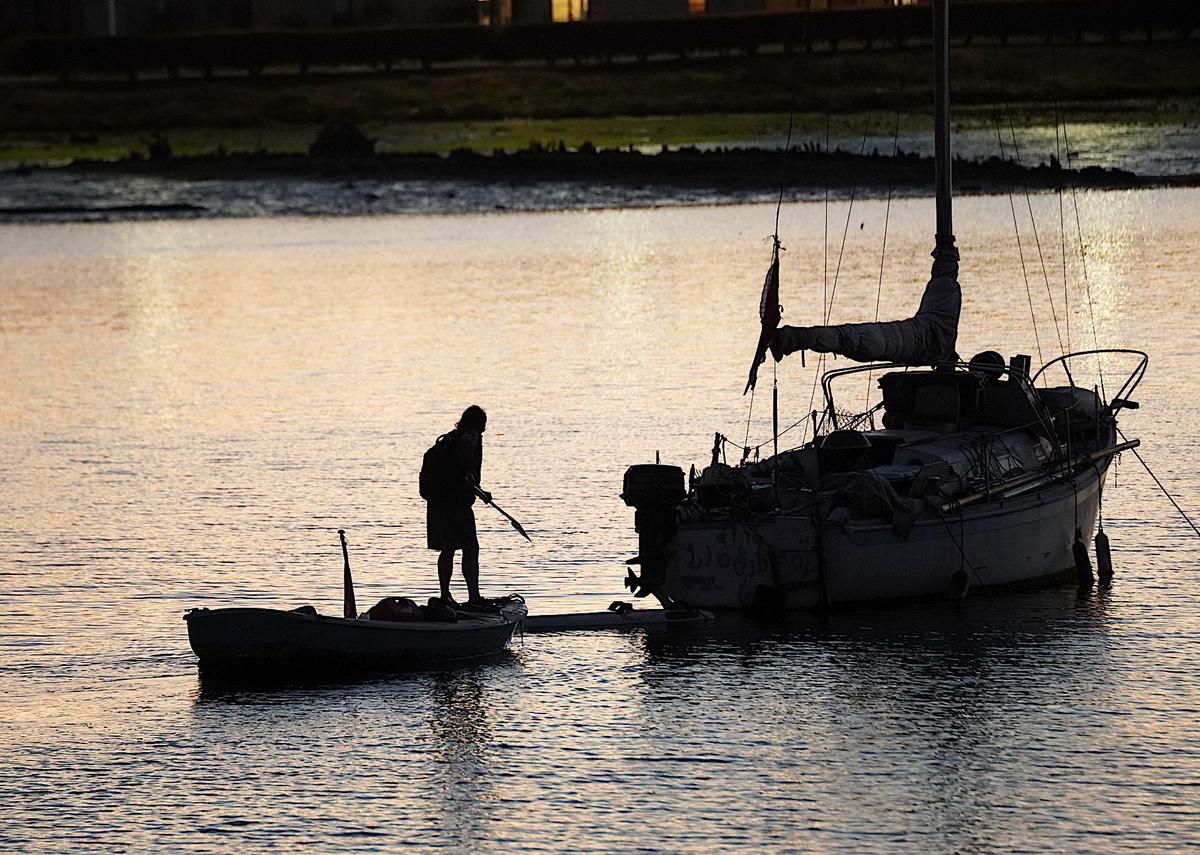
“The amount of crime on the water—when people use the term pirates—is high. But what people don’t realize is people on the shoreside within 100 or 200 feet of the shore, it’s just as high,” he said.
“We’ve had physical assaults at the restaurant right here. We’ve had just last weekend three cars stolen from the parking lot here.”
“The last three months, we probably had a dozen or more stolen vehicles. We’ve had trespassing, thefts, harassment. Last night—Sunday—we had SWAT here in the parking lot. A person in the hotel next door, which is currently housing [homeless], had locked himself in a room.”
Mr. Reigelman told The Epoch Times the yacht club has tried to work with Alameda city and county officials to find a solution, but “it hasn’t worked out at all.”
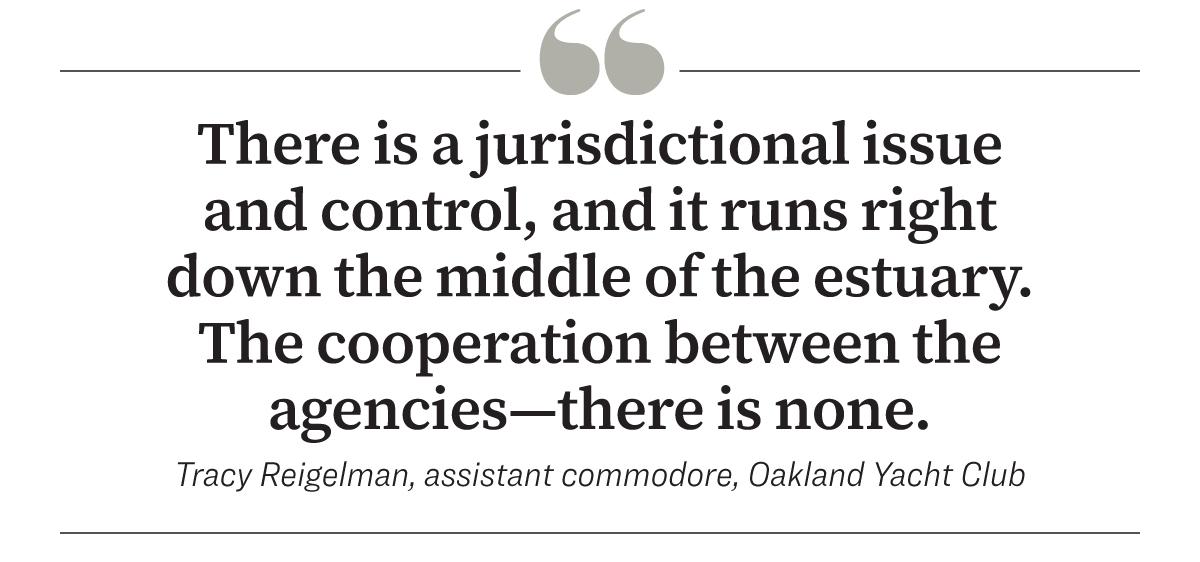
“There is a jurisdictional issue and control, and it runs right down the middle of the estuary. The cooperation between the agencies—there is none,” Mr. Reigelman said.
Areas recently targeted by estuary pirates include the public docks at Jack London Square and the Jack London Aquatic Center in Oakland. There is also the estuary channel west of the Bayside Hotel and Union Point Park.
Simon Greaves, 56, a Sausalito resident from the United Kingdom, is the owner of the sailboat Sun Odyssey, equipped with an inflatable dinghy moored at Jack London Square.
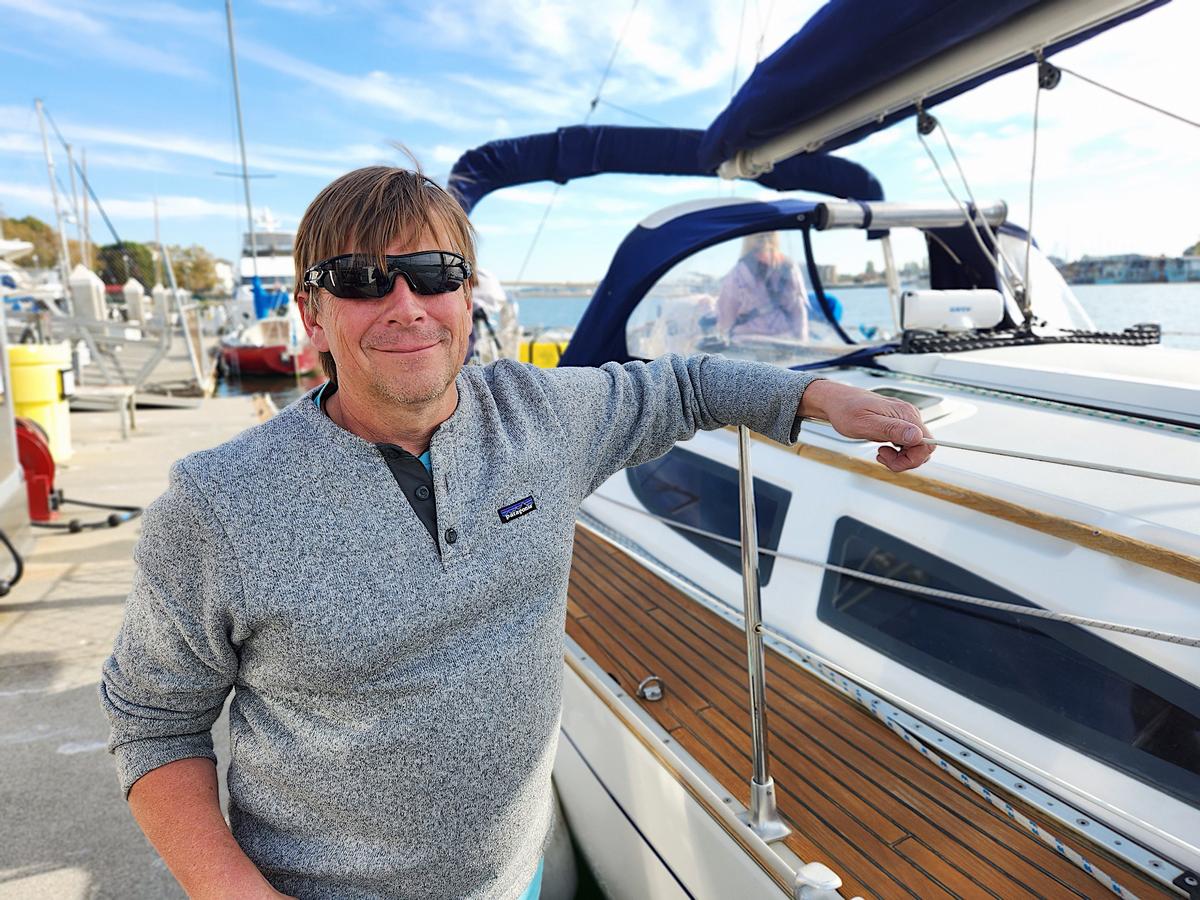
While he’s anchored his sailboat for more prolonged periods along the Oakland Estuary, he’s hesitant to do so now because of rising property crime.
“From what we heard, it wasn’t like that when we were here probably eight months ago, and we started to hear about it a lot. So yes, it’s definitely increased, but I haven’t heard anything recently. I don’t know whether they’re on top of it. It was more this [Oakland] side,” he said.
Mr. Greaves also noticed an increasing number of anchor-offs, and kept the engine on the dinghy separate to prevent theft. He suspects the electronic security gates that keep criminals out of the public marinas encourage thieves to use boats instead.
“So, when we go to this marina, they give you a special key. That key allows you to get in—it’s the same with our docking in Sausalito,” he told The Epoch Times.
The term “pirates” is a fair term, he said.
Mark, who lives on his skiff in the Oakland Estuary, said he felt personally violated after one of his backup gas tank was stolen as he was going through “tough times.”
“When you get robbed, it’s pretty bad. All you can do for the most part is keep an eagle eye and make sure you don’t see strangers who look like they don’t belong,” Mark told The Epoch Times.
“It’s like a nomadic thing. Guys come in and start stealing stuff. It’s sporadic.”
“There was a guy over here causing a lot of problems. He jumped on a boat a gal was living on like he was going to do something. I would say they’re probably addicted to something and have to support their habit somehow.”
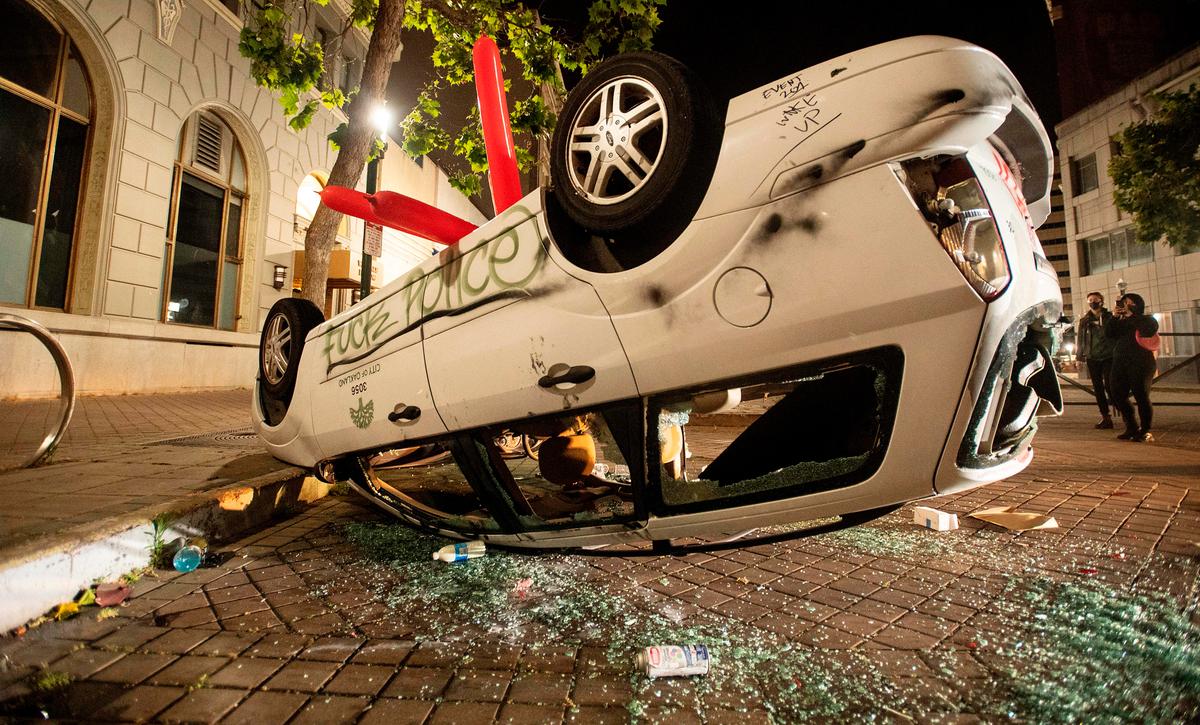
According to the Oakland Police Department (OPD) crime report for Sept. 4–10, robberies had increased by 20 percent in 2023, with 348 reported incidents compared with 291 the year before.
The city saw a whopping 44 percent increase in burglaries, with 2,137 reported incidents compared to 1,670 in 2022.
Crime overall is up 25 percent year over year, the report added.
An OPD spokeswoman told The Epoch Times that since August, there have been “very few incidents” on the Oakland Estuary, “except for a two-week span that included thefts ranging from small items to a large vessel.”
“OPD received three separate stolen item reports during the above two-week span,” the spokeswoman said.
“The crimes were generally committed at night or during early morning hours. Victims are boat owners who have their boats stored in local marinas. There were no weapons used during the two-week span of crime.”
So far, police have arrested a transient man charged with stealing an outboard motor.
Mr. Reigelman said it’s difficult to assess the exact percentage of crimes committed by the homeless because their victims aren’t always willing to report them.
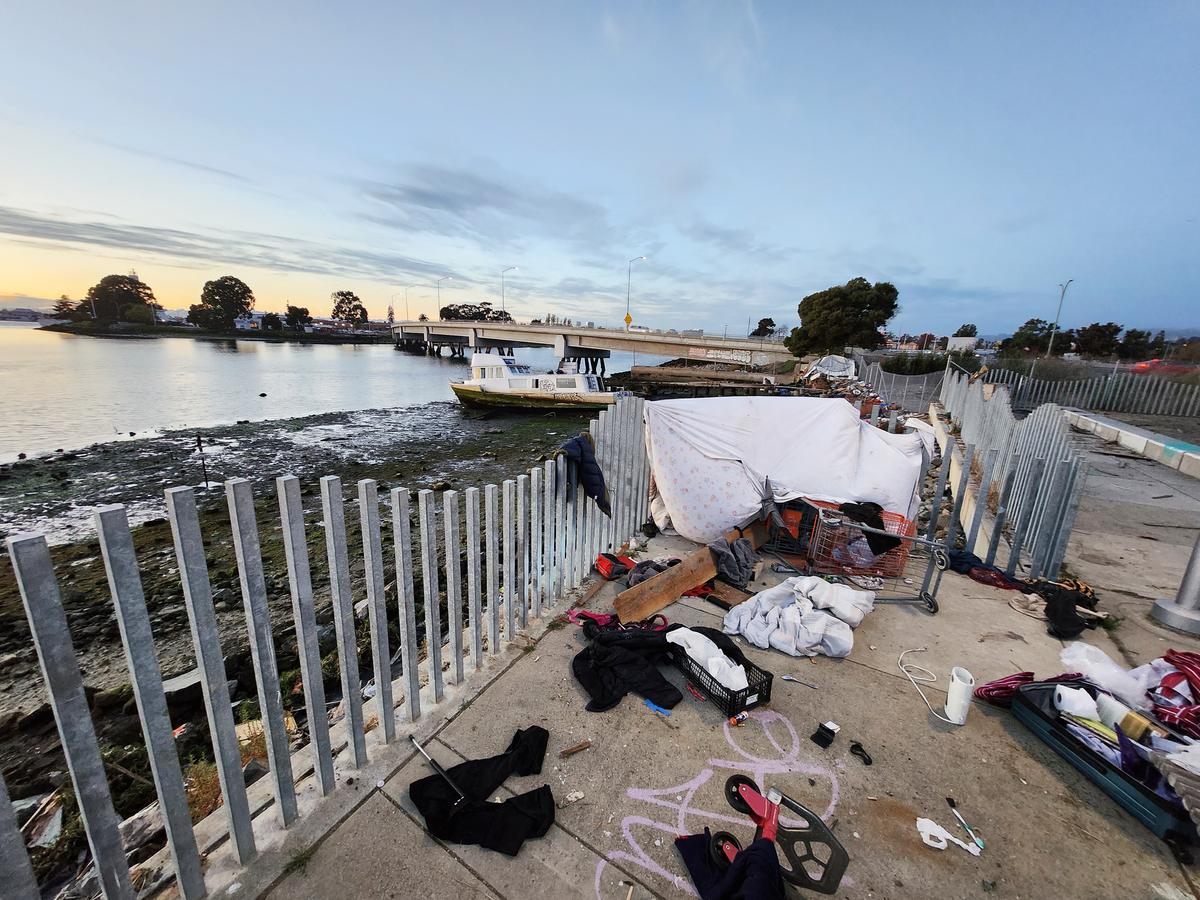
One thing that is certain is that homelessness—whether on the shore or on the water—continues to be a problem.
Alameda County declared a state of emergency as the number of illegal homeless encampments on land swelled from less than 150 in 2020 to 1,381 by June 2023.
Until recently, the Oakland Embarcadero was a sprawling enclave of pitched tents and old recreational vehicles. The city set up concrete barriers to keep the homeless encampments away.
“Right now, it’s lawless,” Mr. Reigelman said about waterborne crime. Some licensed and registered boat owners are “walking around telling people, ‘I’ve got my gun. I’m protected.”
The net effect of waterborne crime has been a steady decline in yacht club membership, he said.

“People don’t want to come by. They’re afraid. We had to invest money in security cameras, fencing, and bushes to protect our facility. We had to relocate walkways we put in 20 years ago,” Mr. Reigelman added.
“It’s a rough situation. I don’t know how you deal with it.”
Mr. De Lappe said that getting rid of illegal anchor-offs is the key to prevention of waterborne crime on the estuary.
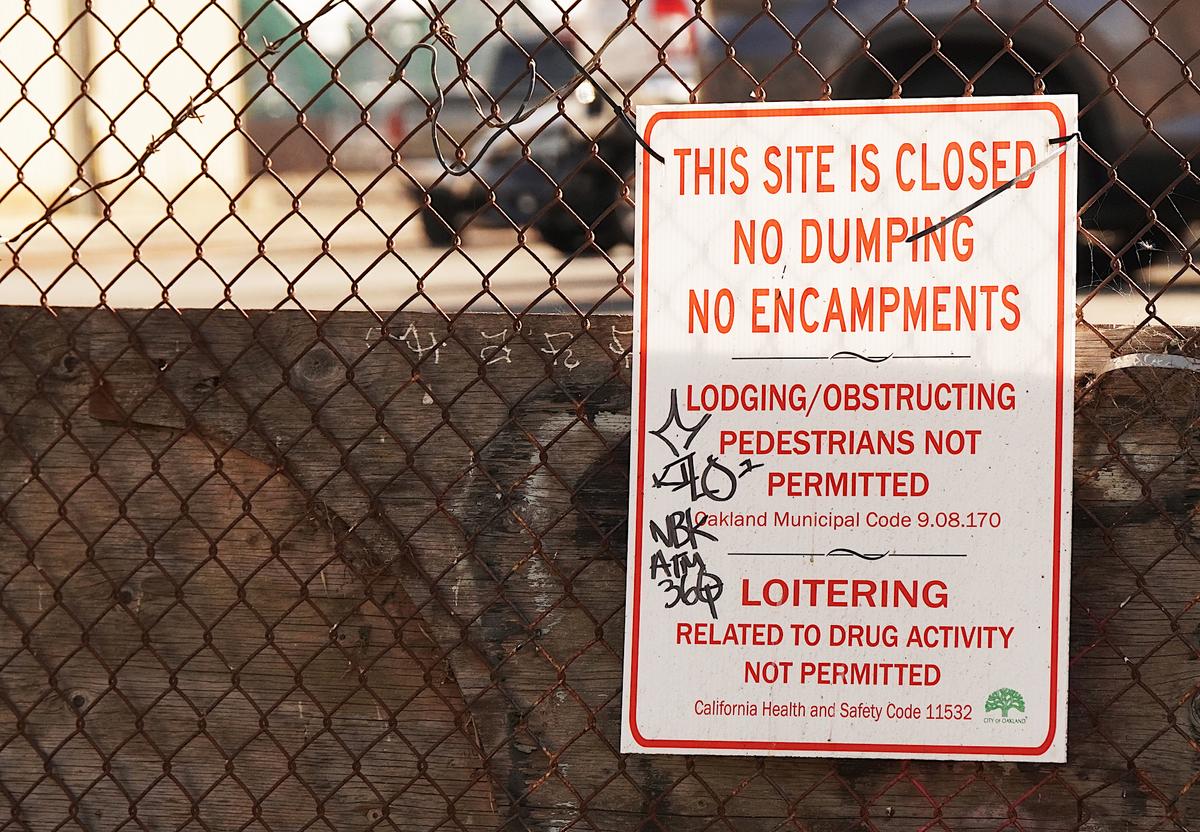
“Thousands use this unique waterway on San Francisco Bay for a wide variety of marine recreation: rowing shells, whaleboats, dragon boats, canoes, kayaks, sailing, and even recreational swimming,” he said.
“To have it impacted by those willing to break the law, fouling the water, abandoning their boats when they break loose and sink in storms, was very disheartening.
“While I have sympathy for the unhoused, living on end-of-life boats is not an appropriate solution.”
Alaskan native James Redmon, 45, has been anchored illegally without a permit in the Oakland Estuary on a derelict sailboat he purchased for $200 in Oregon.
Mr. Redmon said he sailed down to Oakland to help a friend in need but was unaware he needed a permit and registration, or that the city had a nuisance boat ordinance for the estuary.
“I’m not stuck. I’m trying to figure out what I’m going to do—where to move to, trying to be positive,” Mr. Redmon told The Epoch Times.
“There’s got to be a happy medium. I don’t know where this pirate thing came from.”
Elliott Myles is the owner of the First and Last Chance bar at Jack London Square that once hosted the square’s famous literary namesake and author of “Call of the Wild.”
While acts of “piracy” haven’t directly affected business, Mr. Myles said, waterborne crime “probably got worse during the Covid shutdown because people weren’t going onto boats.”

“People couldn’t come down to [their] boats, so other people would just use them—essentially wrecking them. They’ve had to tow some out,” he told The Epoch Times.
“I think having a presence on the boats meant it was harder to do something like that.”
He said one solution is to increase marine patrols along the estuary. However, this would require better coordination given the “jurisdictional issues” between Oakland and Alameda.

“It’s complicated by the fact that we have a government island with the Coast Guard,” he said. “This is modern politics. No one wants to spend money on anything. Each jurisdiction is willing to point a finger at the other.”
Mr. De Lappe was Oakland’s harbormaster in 2012. Back then, he would look out over the water and see an anchor field of 40 to 50 derelict boats.
The solid waste produced by these unlicensed, unregistered vessels would go straight into the water as raw sewage.
“It’s not unusual for the boats to break loose in a storm or a bad wind and end up in a wreck. When that happens, they will walk away from it. Then it becomes a public expense,” Mr. De Lappe said.
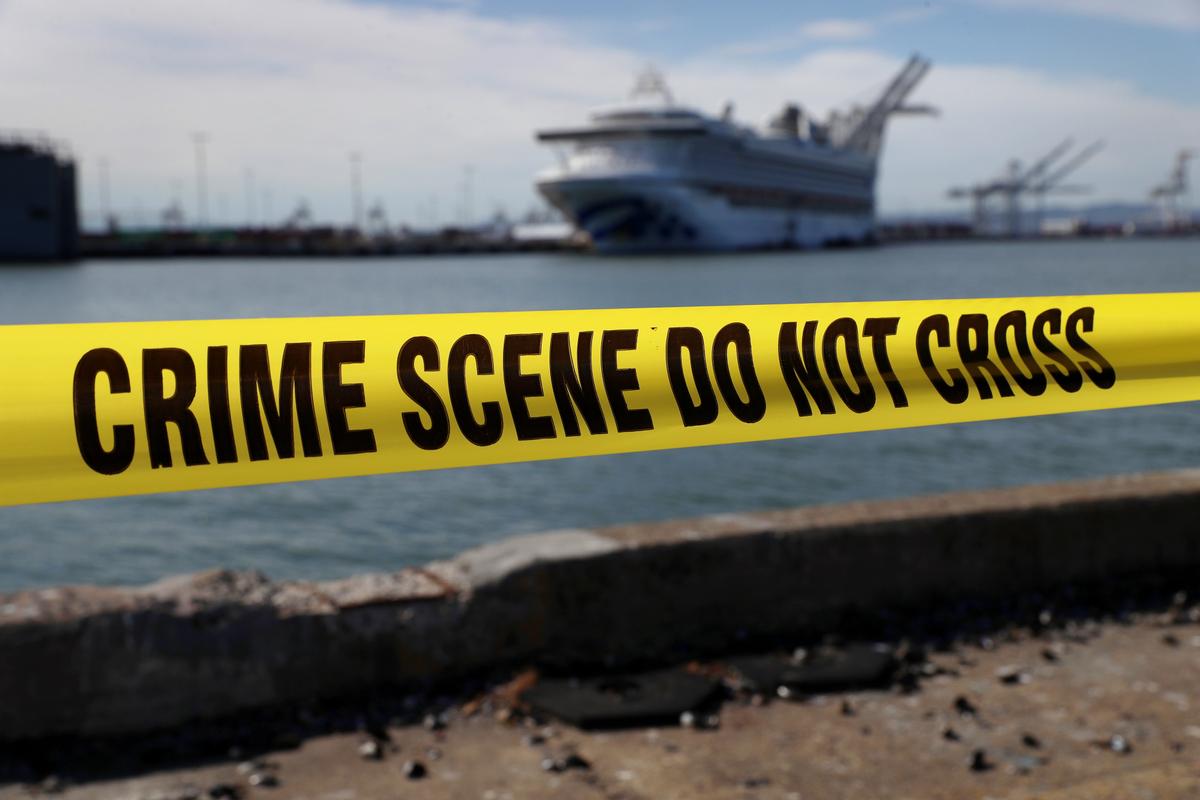
The Oakland Estuary Enhancement Project in 2012 was a joint effort to clean up the estuary by the OPD, U.S. Coast Guard, Environmental Protection Agency, and California State Lands Commission.
The year-long project removed and disposed of 59 derelict anchor-off boats and two tugboats from 77 sites along the federally run channel, including 22,000 pounds of asbestos material and other toxic chemicals at a total cost of $8 million.
Mr. De Lappe said after the project was completed the estuary remained clean and free of illegal anchor-off boats for years. But a failure to monitor and maintain the estuary the derelict boats eventually returned.
The OPD’s sole dedicated marine enforcement officer responded in 2019 by handing notices to the owners to either vacate the estuary or the department would impound the vessels.
Some boat owners took the notice seriously and left the area, Mr. De Lappe said.
“The ones that didn’t got impounded, brought to the Jack London Aquatic Center, dragged them up the ramp into the parking lot, crushed, put in a dumpster, and sent to a landfill.”
Two derelict boat owners, however, sued the city for $900,000 by claiming the seizure and destruction of their vessels harmed them economically. The city settled the case with a $280,000 payout in July 2021.
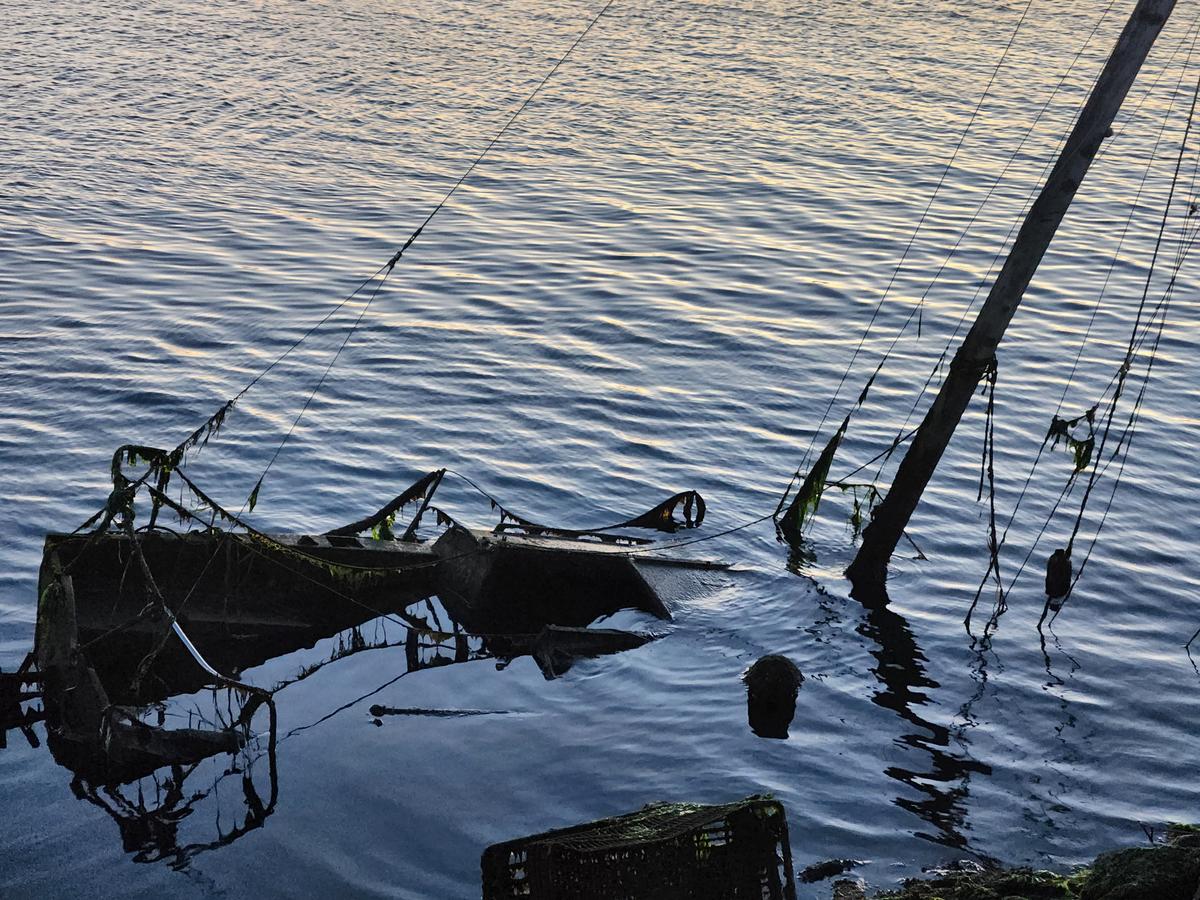
The legal fallout produced a chilling effect on marine enforcement of the Oakland side of the estuary.
“The worst part of that wasn’t the money [settlement] per se,” Mr. De Lappe said. “It was the fact that it put the marine patrol unit into a total stand down. [The city] didn’t want to get sued again.”
In February 2022, the San Francisco Bay Conservation and Development Commission’s enforcement committee issued a directive to the city to remove the illegal anchor-outs from the estuary within a year—by February of this year.
That didn’t happen, Mr. De Lappe said.
On March 7, the Oakland City Council passed the Nuisance Vessel Act that set rules for anchored vessels and established procedures to eliminate nuisance vessels with formal notice.

The city ordinance was a positive step toward a permanent solution, Mr. De Lappe said.
Though billions of dollars have been spent on high-end residential development along the estuary, the presence of illegal anchor-outs remains a daily eyesore.
“Do you think these people spending $2,500 a month for a studio or $4,000 a month for an apartment want to look out at the estuary and see a bunch of derelicts?” Mr. de Lappe said.
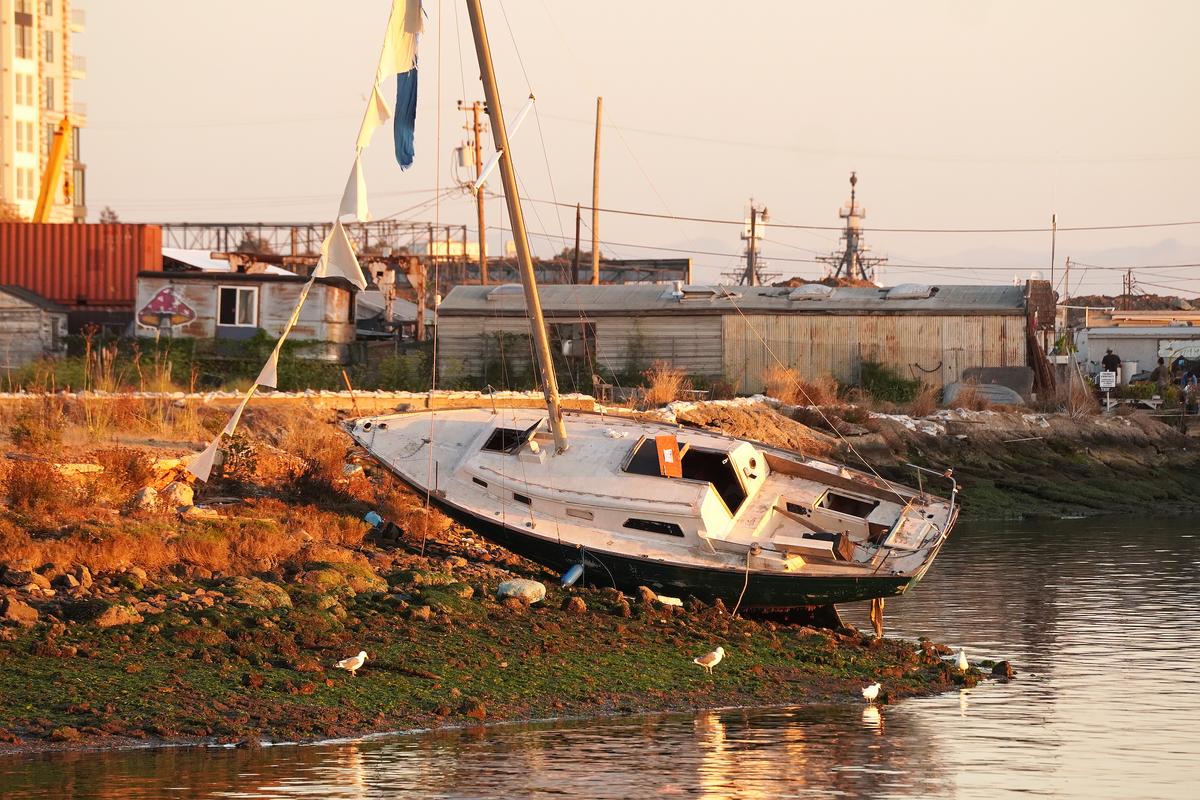
On the Alameda side of the estuary, the police department has allocated one unit for maritime patrols for 60 hours per month, according to a department spokeswoman.
The Alameda County Sheriff Department Marine Patrol recently disbanded. Though there are now signs of a willingness to address illegal anchor-offs in a coordinated manner.
On Oct. 5, an interagency meeting with law enforcement held in Oakland outlined a program to include giving 30 days’ notice to remove derelict boats from the estuary, scheduled cleanup days on Dec. 13, 2023, and Jan. 3, 2024, and seizing noncompliant occupied vessels on Dec. 20, 2023.
The OPD announced it plans to train 10 new police officers for marine patrol with the goal of developing a 24/7 response.
In the meantime, the Alameda Police Department (APD) is offering a $75,000 hiring bonus to increase police staffing.
The APD spokeswoman said, “We are very pleased that OPD is increasing their enforcement efforts and will continue to work with our local partners to address community concerns about crime on and around the waterways,”
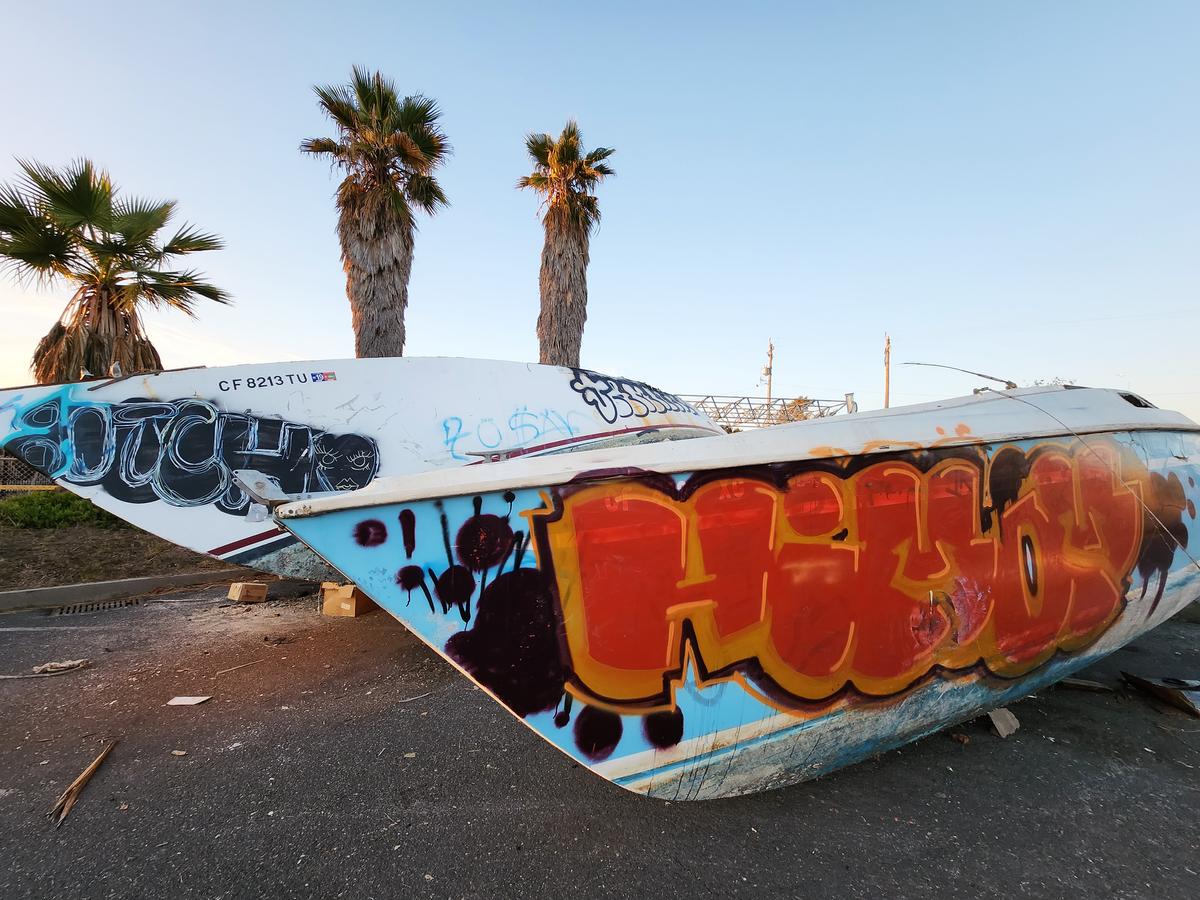
The Coast Guard has agreed to assist estuary law enforcement with additional patrols, airborne surveillance, and crime monitoring.
In further support of the cleanup, the Surrendered and Abandoned Vessel Exchange (SAVE) grant program awarded $166,250 to Oakland and $200,000 to Alameda.
Coupled with Oakland’s nuisance ordinance, the city is in an excellent position to clean up the estuary, Mr. De Lappe said.
Police and city officials “don’t need any more bad press,” he said. “I’ve told them they’re past the point of bad press. You need to concentrate on getting good press. That you’re actually dealing with the problem.”
For Mr. Reigelman, the pirates of the Oakland/Alameda Estuary are a reality that threatens law-abiding citizens and the estuary’s 3,000 boat slips.
“You get what you allow,” he said. “There’s been a lack of consequences.”

